James Saunders
Guest Reporter
2025 is Britain's last chance to avoid a long-term migration catastrophe of Boris Johnson's making, a leading think tank has warned.
Back in March 2021, Boris Johnson's Home Secretary Priti Patel introduced the "New Plan for Immigration" to the Commons.
A few months later, the Office for National Statistics announced that 332,000 non-EU migrants had arrived in Britain between June 2020 and June of that year.
A few years later, 1,034,000 non-EU migrants arrived in Britain over the same June-to-June period. A more than 200 per cent increase.
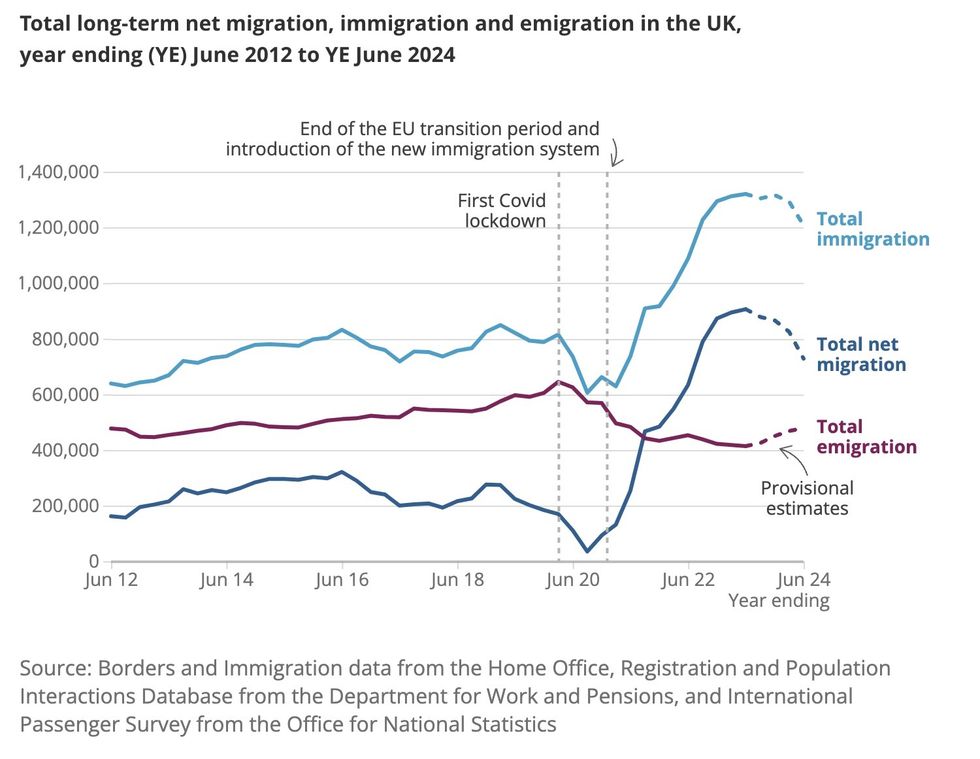
Patel had hailed what she called a "significant overhaul of our asylum system". It was "new, comprehensive, fair, but firm".
She had promised "new rules to stop unscrupulous people posing as children", a beefed-up Border Force, and "rapid removals" of "those with no right to be here in the UK".
With Brexit having been delivered, and EU free movement no longer foisted upon the UK, Westminster could now look further afield. At the time, that was Hong Kong, as dissidents to Xi Jinping's regime found themselves unexpectedly crushed under China's boot in the former British dependent territory.
Leaving the EU would let Britain be "immigration liberals", wrote James Forsythe, future Political Secretary to future Prime Minister Rishi Sunak, with Hongkongers in mind.
He had written that the issue on the minds of many Brexit-backers "was control, not immigration levels, per se".
READ MORE ON BRITAIN'S MIGRATION CHAOS:
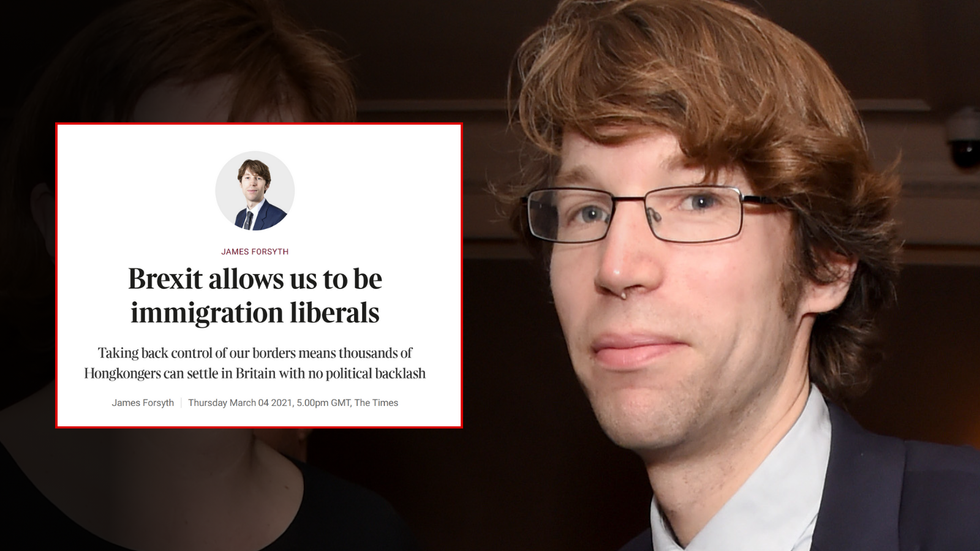
Then, in May 2022 - and midway through an unprecedented surge in arrivals from outside the EU - the Johnson Government's interpretation of the Australian 'points-based system' was accused of having "significantly weakened control" over Britain's borders.
Those numbers would keep climbing until 2024, the ONS says, and they're now expected to drop.
That surge has been branded by some as the "Boriswave" - a term which found its origins on social media, and has since made its way to think tanks and political parties alike. On December 29, Reform UK officially adopted the term in a scathing attack on Johnson's non-European migration surge.
Proponents of the term will argue Johnson and his Government directly oversaw - and allowed the conditions for - millions of non-EU nationals to come to Britain.
And now, with Indefinite Leave to Remain (ILR) open to most of those who arrived via the Work or Family visa route after five years, Britain faces a "ticking clock".
That's the warning of Sam Bidwell, of the Adam Smith Institute, who calls for an immediate reform of ILR rules to "limit the long-term harms of the so-called 'Boriswave'", which will start being handed ILR for life from early 2026.

That will give the "Boriswave" the right to taxpayer-funded state benefits, the ability to use the NHS free-of-charge, and the chance to bring in family members - a "cascade of dependents", as Bidwell put it.
Britain's system "was not designed to cope with long-term settlement at such scale and pace," he warns.
Even if Labour manages to deliver 1.5 million new homes between now and 2029, the scale of the non-EU migration wave is such that that tally could be wiped out entirely.
If such a large amount of people are, in fact, here to stay, the consequences could be dire.
Bidwell himself butted heads with ex-Spectator editor Fraser Nelson just days ago after the latter penned an article in The Telegraph headlined: "Britain's integration miracle is a beacon of hope amid instability."
Nelson had argued that Britishness - part of which the "Boriswave" could soon comprise - is "a set of values that anyone can adopt".
But under Johnson and Patel's "new plan", the UK has imported millions of people who, as Bidwell says, are "less culturally compatible" than the EU migrants who came before.
He points to damning statistics on integration, like how 52 per cent of British Muslims would support making it illegal to depict the Prophet Mohammed, or how Pakistanis and Bangladeshis in the UK are less employed and take up more social housing than national averages.
Bidwell also casts off "oft-cited figures about Indian high-earners" as a "misrepresentative statistical fudge" directly due to the "Boriswave".
Thanks to the recent influx of Indian nationals (240,000 in the last year alone, according to the ONS), the median Indian (aged 22-40) now earns less than the national average.
The difficulty of integration may not be so obvious to "the Westminster bubble", as Reform UK MP Rupert Lowe pointed out on social media.
For them, "integration means cheap labour and exotic food", but "out in proper Britain, integration has largely not worked", he says.
"On such a vast scale, it has been an undeniable failure."
Bidwell's ILR plans were written before the reemergence of Britain's grooming gangs scandal - which has thrust mass migration into the spotlight once again.
Shadow Justice Secretary Robert Jenrick warned that some of those who have migrated to the UK in recent years have "backward, frankly medieval attitudes to women" - adding that "we have to be very careful about who is coming into this country".
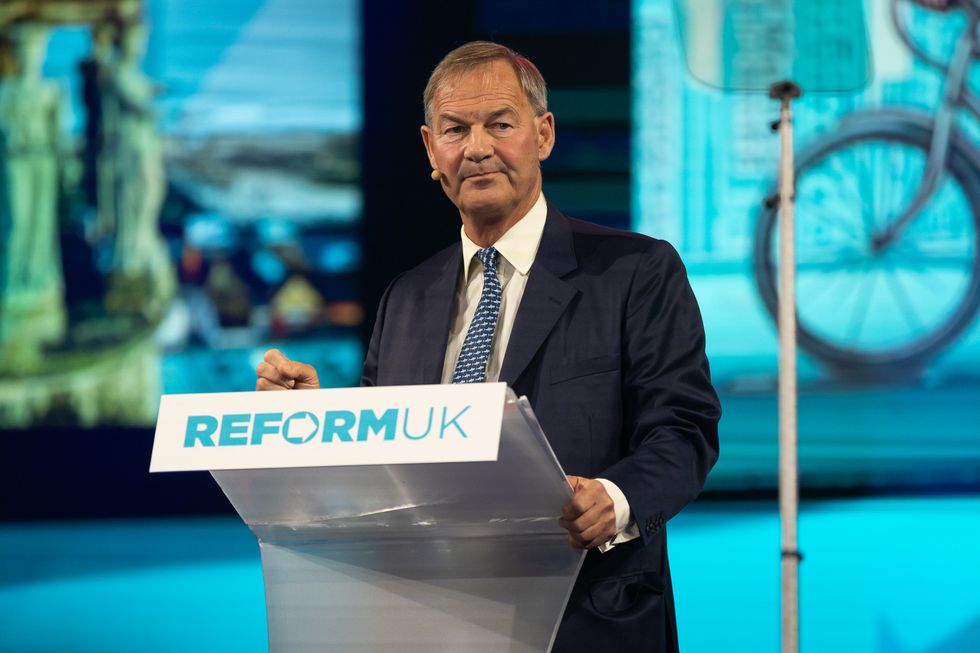
But Jenrick was Rishi Sunak's Immigration Minister for more than a year - and oversaw part of the "Boriswave".
The Tory leadership runner-up shifted from campaigning for Remain in 2016 to his new role as a migration hardliner - which one former Minister blamed on his stint in the Home Office.
Before that, "he was seen as sensible, pragmatic and fairly centrist," a former Minister told the i last summer.
"He was very good as the Communities Secretary, but he seems to have been radicalised by his time in the Home Office," they added.
That's the same Home Office which Sam Bidwell has previously accused of falling victim to "performative empathy".
Jenrick has been vocal on mass immigration post-leadership bid - sparking fury from ex-Johnson adviser Samuel Kasumu, who claimed to the BBC that he could be "the most divisive person in our political history" and "has the potential to incite hatred in ways that I have never seen".
But he issued a stark warning last November. "Some parts of our country are unrecognisable from 30 years ago," Jenrick said.
And, of course, there's the fiscal impact too.
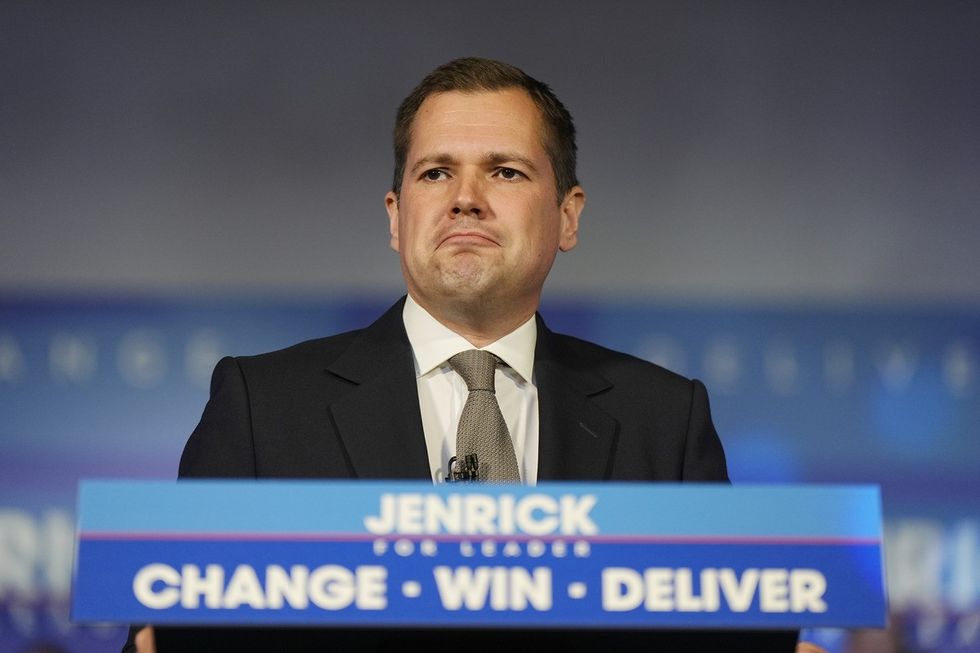
"According to figures produced by the OBR, the average 'low-wage migrant worker' will cost the British taxpayer £465,000 by the time they reach 81 years of age," Bidwell's policy recommendation warns.
"According to analysis conducted by Karl Williams, from the Centre for Policy Studies, just 5 per cent of all visas in 2022-23 were given to high-skilled migrants who are likely to be net contributors," he adds.
Pockets of social media aside, Johnson has largely evaded criticism for overseeing the introduction of so many fiscally harmful and culturally "incompatible" migrants to Britain.
Asked why, Bidwell told GB News: "He still carries a lot of capital with a certain sort of Brexit voter... because he was the face of Vote Leave.
"He has managed to escape scrutiny because many of those voters - particularly older voters in that cohort - will see him as the man who got Brexit done."
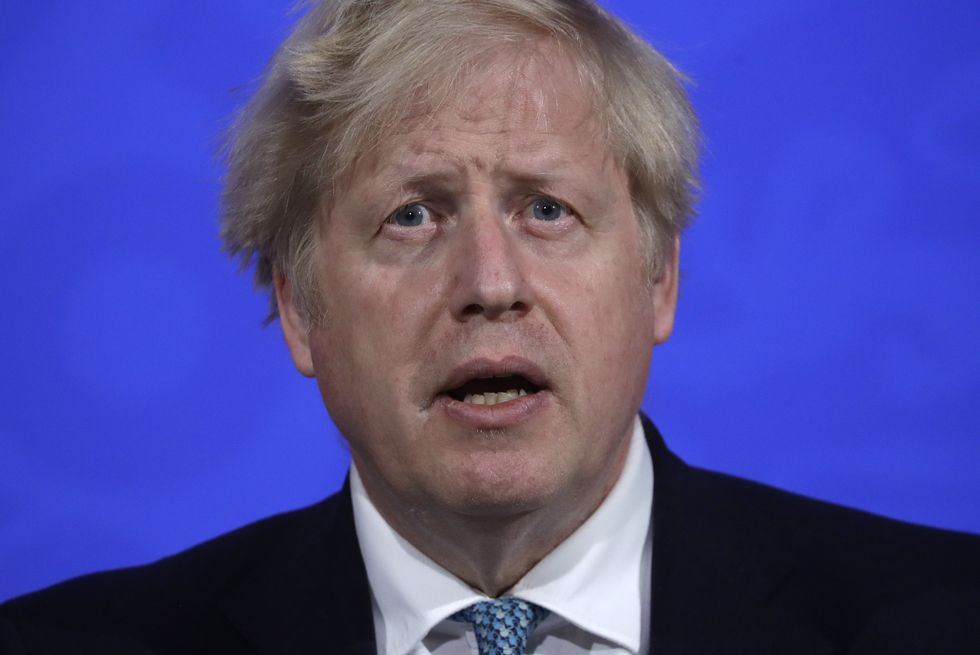
The former PM now "enjoys a kind of comfortable martyrdom" despite the "Boriswave" because "one might argue that he was arguing for an anti-immigration cause", he added.
Integrating the "wave" will be "a lengthy and difficult process", Bidwell says.
The solution? Triple the ILR threshold to 15 years.
Britain should put safeguards in place to ensure that "high-quality, compatible" migrants from countries such as the US, Australia, and Canada continue coming to Britain.
And if Labour doesn't have the mettle, a future Government could one day revoke ILR status from existing holders by amending Section 76 of the Nationality, Immigration, and Asylum Act 2002.
Such a move would doubtless prove unpalatable to the current Government, despite its promises to stem the flow of migration - and even then, only illegal migration.
As Bidwell says, "it seems unlikely" that Labour would do such a thing.
"However", he adds, "this fact alone does not mean that the British people need to live with the mistakes of the past few years for decades to come".
Find Out More...
Back in March 2021, Boris Johnson's Home Secretary Priti Patel introduced the "New Plan for Immigration" to the Commons.
A few months later, the Office for National Statistics announced that 332,000 non-EU migrants had arrived in Britain between June 2020 and June of that year.
A few years later, 1,034,000 non-EU migrants arrived in Britain over the same June-to-June period. A more than 200 per cent increase.

Patel had hailed what she called a "significant overhaul of our asylum system". It was "new, comprehensive, fair, but firm".
She had promised "new rules to stop unscrupulous people posing as children", a beefed-up Border Force, and "rapid removals" of "those with no right to be here in the UK".
With Brexit having been delivered, and EU free movement no longer foisted upon the UK, Westminster could now look further afield. At the time, that was Hong Kong, as dissidents to Xi Jinping's regime found themselves unexpectedly crushed under China's boot in the former British dependent territory.
Leaving the EU would let Britain be "immigration liberals", wrote James Forsythe, future Political Secretary to future Prime Minister Rishi Sunak, with Hongkongers in mind.
He had written that the issue on the minds of many Brexit-backers "was control, not immigration levels, per se".
READ MORE ON BRITAIN'S MIGRATION CHAOS:
- The number of Britons who think immigration is a good thing is crashing - and they have good reason to feel this, says Matt Goodwin
- Immigration: The Truth - the changing face of Britain explored - a GB News documentary
- Paul Embery: Japan teaches an important lesson on immigration - and the West doesn't want you to hear it

Then, in May 2022 - and midway through an unprecedented surge in arrivals from outside the EU - the Johnson Government's interpretation of the Australian 'points-based system' was accused of having "significantly weakened control" over Britain's borders.
Those numbers would keep climbing until 2024, the ONS says, and they're now expected to drop.
That surge has been branded by some as the "Boriswave" - a term which found its origins on social media, and has since made its way to think tanks and political parties alike. On December 29, Reform UK officially adopted the term in a scathing attack on Johnson's non-European migration surge.
Proponents of the term will argue Johnson and his Government directly oversaw - and allowed the conditions for - millions of non-EU nationals to come to Britain.
And now, with Indefinite Leave to Remain (ILR) open to most of those who arrived via the Work or Family visa route after five years, Britain faces a "ticking clock".
That's the warning of Sam Bidwell, of the Adam Smith Institute, who calls for an immediate reform of ILR rules to "limit the long-term harms of the so-called 'Boriswave'", which will start being handed ILR for life from early 2026.

That will give the "Boriswave" the right to taxpayer-funded state benefits, the ability to use the NHS free-of-charge, and the chance to bring in family members - a "cascade of dependents", as Bidwell put it.
Britain's system "was not designed to cope with long-term settlement at such scale and pace," he warns.
Even if Labour manages to deliver 1.5 million new homes between now and 2029, the scale of the non-EU migration wave is such that that tally could be wiped out entirely.
If such a large amount of people are, in fact, here to stay, the consequences could be dire.
Bidwell himself butted heads with ex-Spectator editor Fraser Nelson just days ago after the latter penned an article in The Telegraph headlined: "Britain's integration miracle is a beacon of hope amid instability."
Nelson had argued that Britishness - part of which the "Boriswave" could soon comprise - is "a set of values that anyone can adopt".
But under Johnson and Patel's "new plan", the UK has imported millions of people who, as Bidwell says, are "less culturally compatible" than the EU migrants who came before.
He points to damning statistics on integration, like how 52 per cent of British Muslims would support making it illegal to depict the Prophet Mohammed, or how Pakistanis and Bangladeshis in the UK are less employed and take up more social housing than national averages.
Bidwell also casts off "oft-cited figures about Indian high-earners" as a "misrepresentative statistical fudge" directly due to the "Boriswave".
Thanks to the recent influx of Indian nationals (240,000 in the last year alone, according to the ONS), the median Indian (aged 22-40) now earns less than the national average.
The difficulty of integration may not be so obvious to "the Westminster bubble", as Reform UK MP Rupert Lowe pointed out on social media.
For them, "integration means cheap labour and exotic food", but "out in proper Britain, integration has largely not worked", he says.
"On such a vast scale, it has been an undeniable failure."
Bidwell's ILR plans were written before the reemergence of Britain's grooming gangs scandal - which has thrust mass migration into the spotlight once again.
Shadow Justice Secretary Robert Jenrick warned that some of those who have migrated to the UK in recent years have "backward, frankly medieval attitudes to women" - adding that "we have to be very careful about who is coming into this country".

But Jenrick was Rishi Sunak's Immigration Minister for more than a year - and oversaw part of the "Boriswave".
The Tory leadership runner-up shifted from campaigning for Remain in 2016 to his new role as a migration hardliner - which one former Minister blamed on his stint in the Home Office.
Before that, "he was seen as sensible, pragmatic and fairly centrist," a former Minister told the i last summer.
"He was very good as the Communities Secretary, but he seems to have been radicalised by his time in the Home Office," they added.
That's the same Home Office which Sam Bidwell has previously accused of falling victim to "performative empathy".
Jenrick has been vocal on mass immigration post-leadership bid - sparking fury from ex-Johnson adviser Samuel Kasumu, who claimed to the BBC that he could be "the most divisive person in our political history" and "has the potential to incite hatred in ways that I have never seen".
But he issued a stark warning last November. "Some parts of our country are unrecognisable from 30 years ago," Jenrick said.
And, of course, there's the fiscal impact too.

"According to figures produced by the OBR, the average 'low-wage migrant worker' will cost the British taxpayer £465,000 by the time they reach 81 years of age," Bidwell's policy recommendation warns.
"According to analysis conducted by Karl Williams, from the Centre for Policy Studies, just 5 per cent of all visas in 2022-23 were given to high-skilled migrants who are likely to be net contributors," he adds.
Pockets of social media aside, Johnson has largely evaded criticism for overseeing the introduction of so many fiscally harmful and culturally "incompatible" migrants to Britain.
Asked why, Bidwell told GB News: "He still carries a lot of capital with a certain sort of Brexit voter... because he was the face of Vote Leave.
"He has managed to escape scrutiny because many of those voters - particularly older voters in that cohort - will see him as the man who got Brexit done."

The former PM now "enjoys a kind of comfortable martyrdom" despite the "Boriswave" because "one might argue that he was arguing for an anti-immigration cause", he added.
Integrating the "wave" will be "a lengthy and difficult process", Bidwell says.
The solution? Triple the ILR threshold to 15 years.
Britain should put safeguards in place to ensure that "high-quality, compatible" migrants from countries such as the US, Australia, and Canada continue coming to Britain.
And if Labour doesn't have the mettle, a future Government could one day revoke ILR status from existing holders by amending Section 76 of the Nationality, Immigration, and Asylum Act 2002.
Such a move would doubtless prove unpalatable to the current Government, despite its promises to stem the flow of migration - and even then, only illegal migration.
As Bidwell says, "it seems unlikely" that Labour would do such a thing.
"However", he adds, "this fact alone does not mean that the British people need to live with the mistakes of the past few years for decades to come".
Find Out More...
